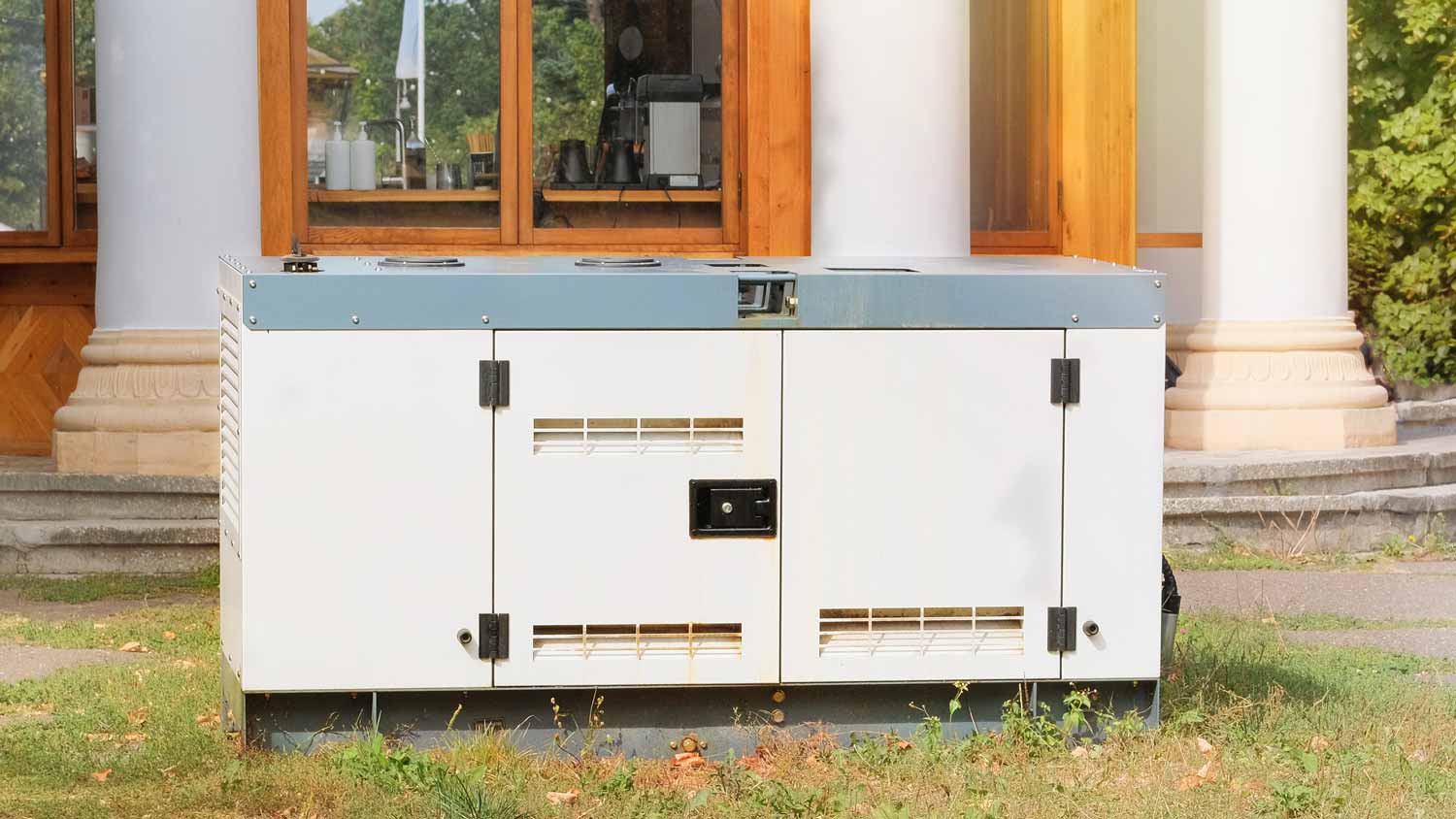8 Types of Generators for Homeowners
Create backup power for your home with the help of a generator


Whether you’re preparing for a winter storm or camping off-grid, you’ll need to choose from many types of generators to find the one that will meet your needs. Our guide features different types of generators for powering your entire home, charging your cell phone, or charging up a portable fridge. Read on to see the eight types of generators that will help you power up your devices.

If you live in an area prone to natural disasters or frequently experiences power outages, consider installing a partial or whole-house generator to ensure your home has a backup power supply.
1. Home Standby Generators
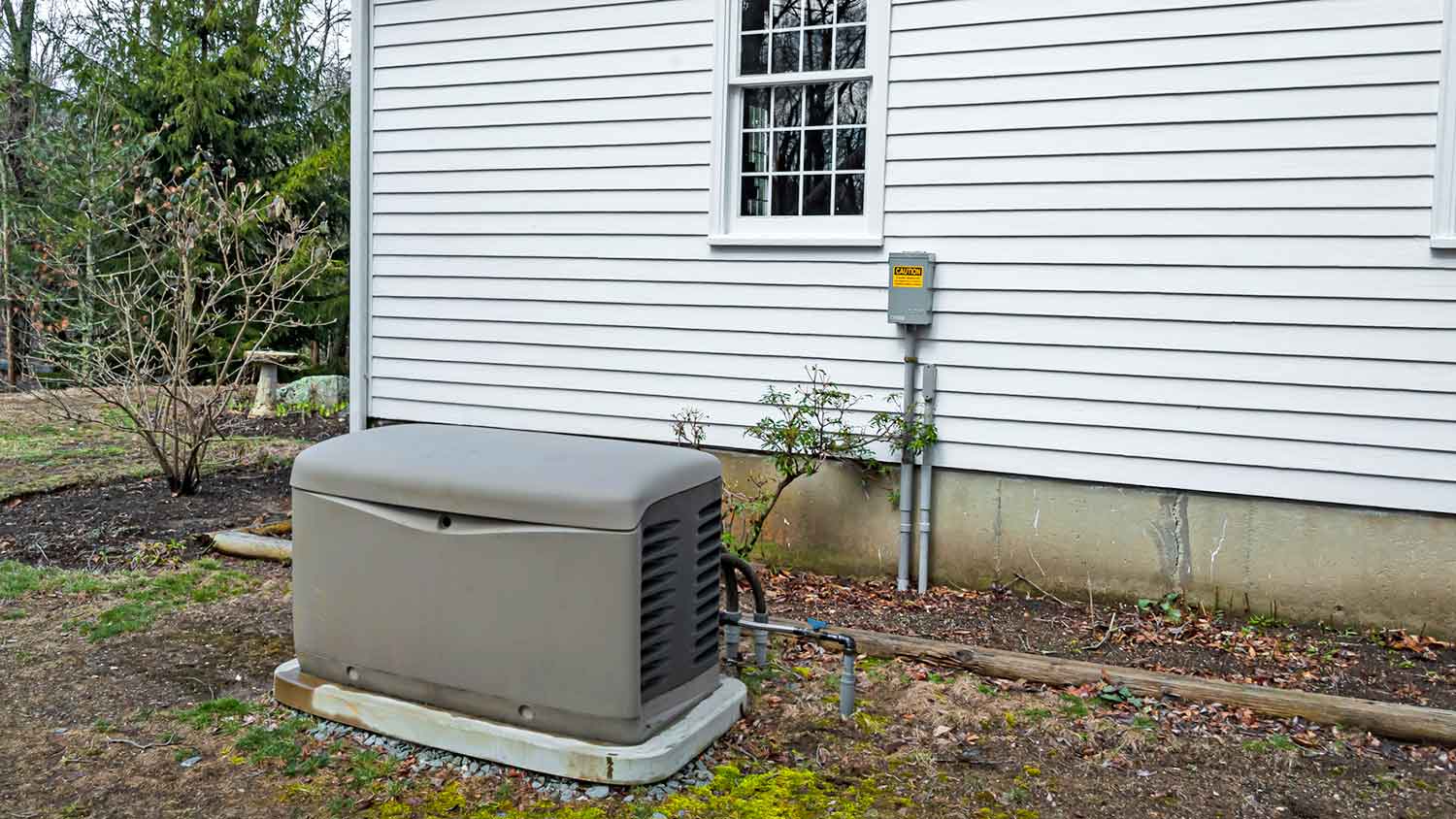
Home standby or whole-house generators can power your entire home during an electrical outage. You’ll need a licensed electrician near you to hardwire the standby generator to your home through a transfer switch. The transfer switch seamlessly moves power from the main breaker to the generator breaker during a power outage—and back again once the main power source kicks back on. A home standby generator can easily connect to your home’s natural gas or propane lines, with many having backup fuel from solar power or gasoline.
Best for: Homeowners that live off-grid or live in storm-prone areas.
Pros:
It powers your appliances, lighting, HVAC, computers, and charges your phone during a power outage.
Some standby generators have a WiFi connection, so you can easily monitor the generator’s status.
It’s a long-term investment that will run for many years .
Many models perform weekly self-tests to ensure they’re operating correctly.
Cons:
It can be cost-prohibitive, with an average price of $1,519 to $8,460.
It takes up a lot of space.
The generator can be noisy.
It requires regular maintenance.
2. Portable Generators
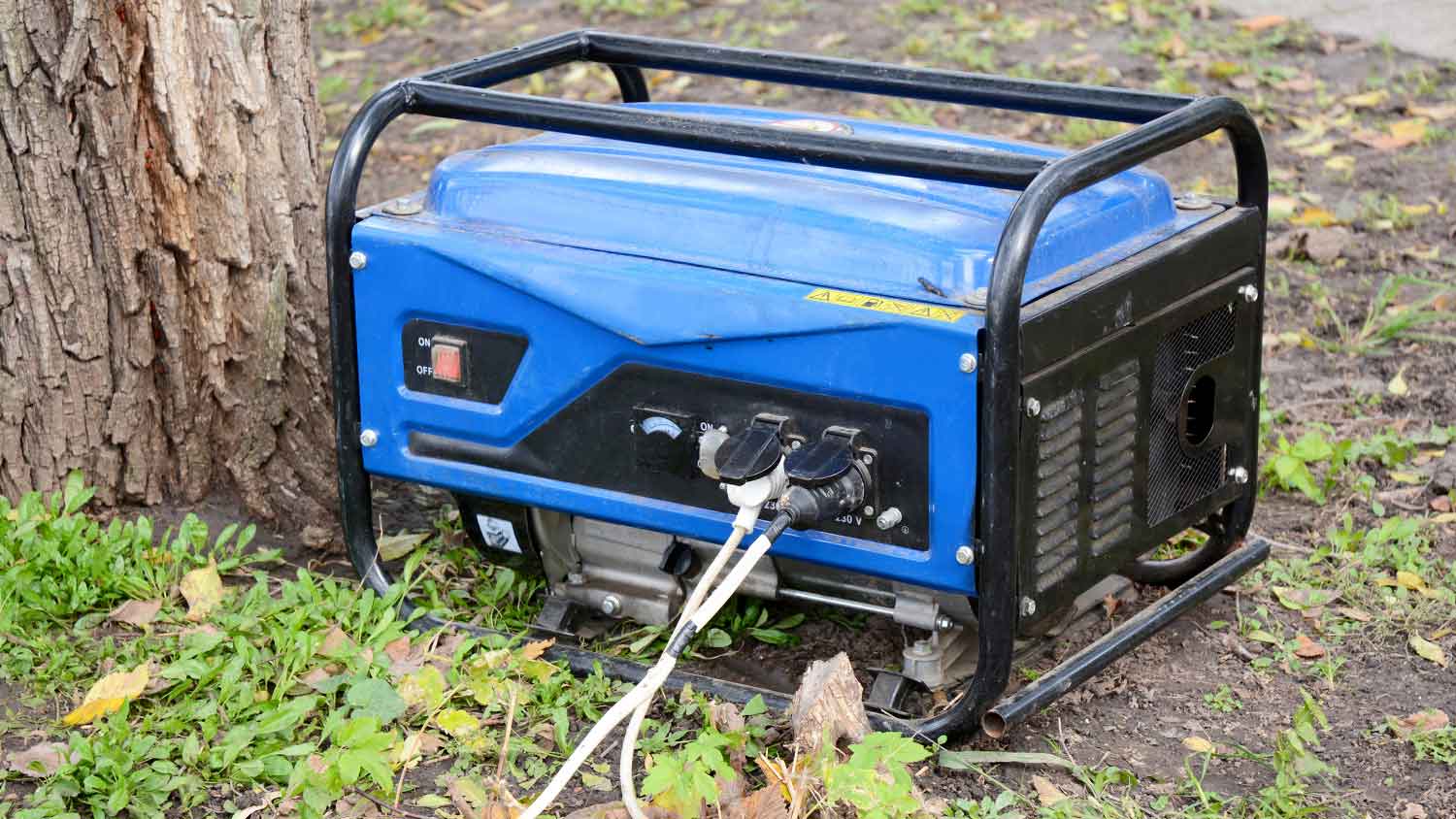
Portable generators are compact, efficient, and easy to move around. Due to their size, portable generators have less wattage than a home standby generator, so you won’t be able to power your entire home. But portable generators run on propane, gasoline, or solar energy, making them durable and efficient during emergencies.
Best for: Camping, RV trips, outdoor parties, tailgating, and boating trips.
Pros:
Its small size makes it easy to store in a garage or shed when not in use.
It’s more cost-effective than larger generator types.
It can easily and quickly power small appliances, tools, and cell phones.
Portable models are built to withstand harsh environments.
Cons:
It doesn’t produce as much energy as a home standby generator.
Portables require a generator-grade extension cord.
It can be noisy.
It does not automatically turn on during a power outage.
3. Inverter Generators
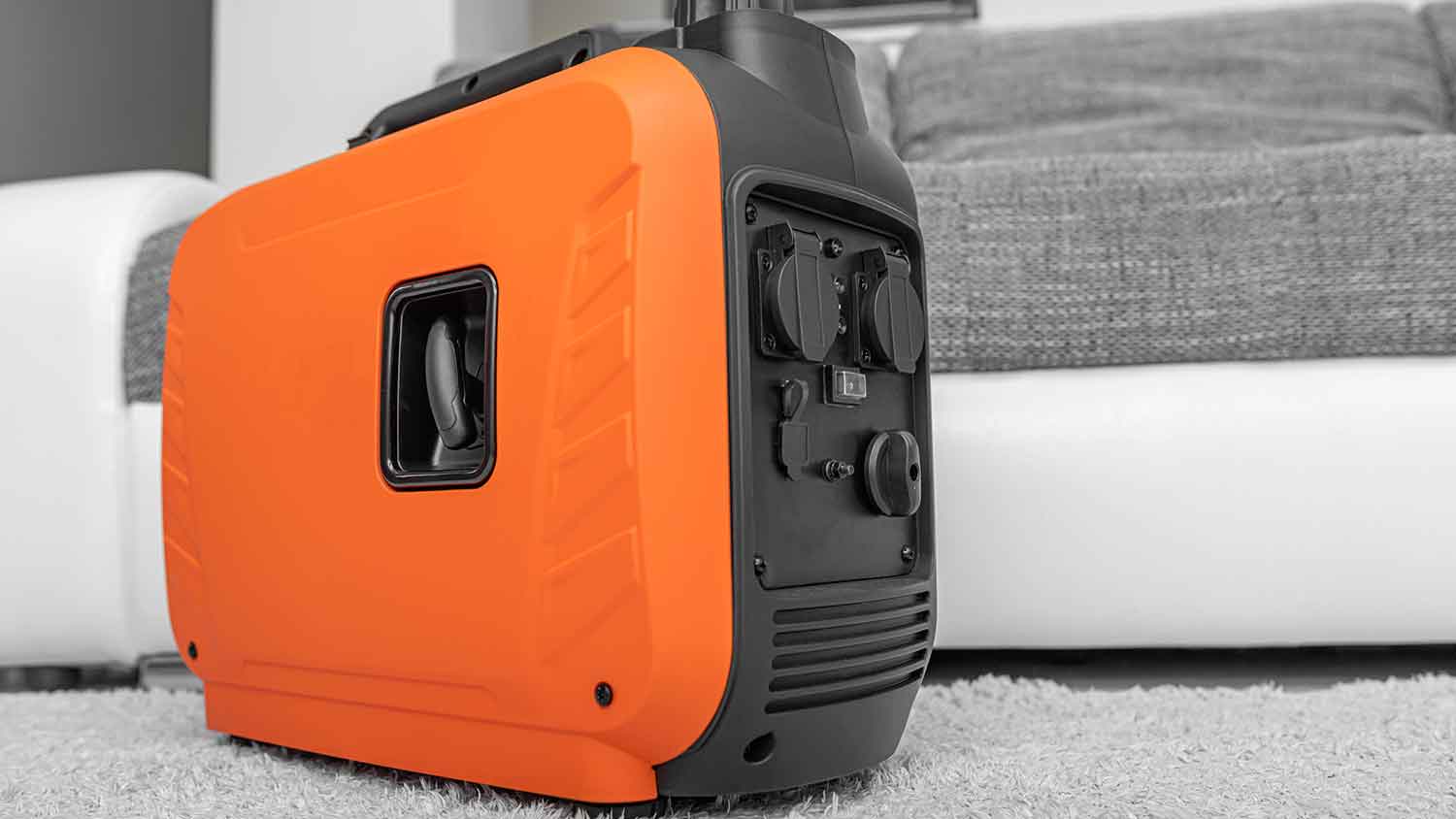
Inverter generators are portable and create a stable energy flow by producing electricity in three phases. So, instead of running in a constant flow, inverter generators adjust their engine speed to meet the demands of the electronics they are powering. This three-phase energy transfer works best for delicate devices, such as phones and laptops, ensuring no interruption in electrical flow.
Best for: Protecting electronic equipment from power surges when the main breaker turns back on.
Pros:
Inverter generators operate quietly.
They are easy to maintain.
It adapts to the amount of power needed.
This generator type is fuel efficient.
It produces clean energy.
Cons:
Inverter generators have lower wattage.
It cannot keep large appliances running
This type of generator costs $400 to $2,000.
4. Solar Generators
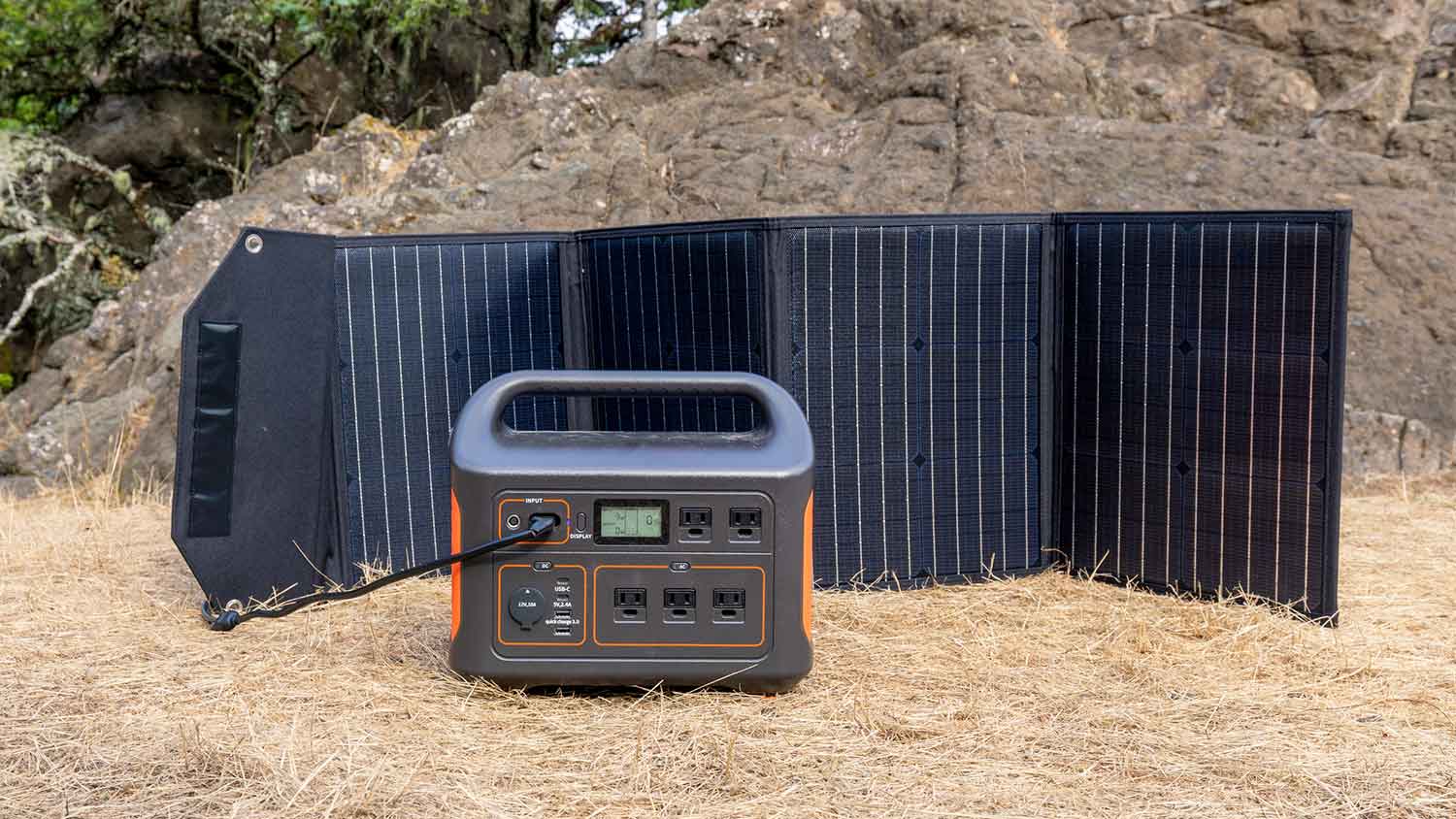
Solar generators run on clean, renewable solar energy. They can power a few devices quickly, which works well for households that don’t live in storm-prone areas. However, if you need more power, you can always add extra solar panels or an additional battery to increase the power output.
Best for: Homeowners that don’t live in extreme weather climates and need less energy to run appliances in an emergency.
Pros:
It provides free, renewable energy.
They are lightweight and portable.
This type of generator runs quietly.
They are low maintenance.
It can safely run indoors.
Cons:
Solar generators typically cost $1,000 to $3,000.
It requires sunlight to charge.
It produces less power than other types of generators.
5. Gasoline Generators
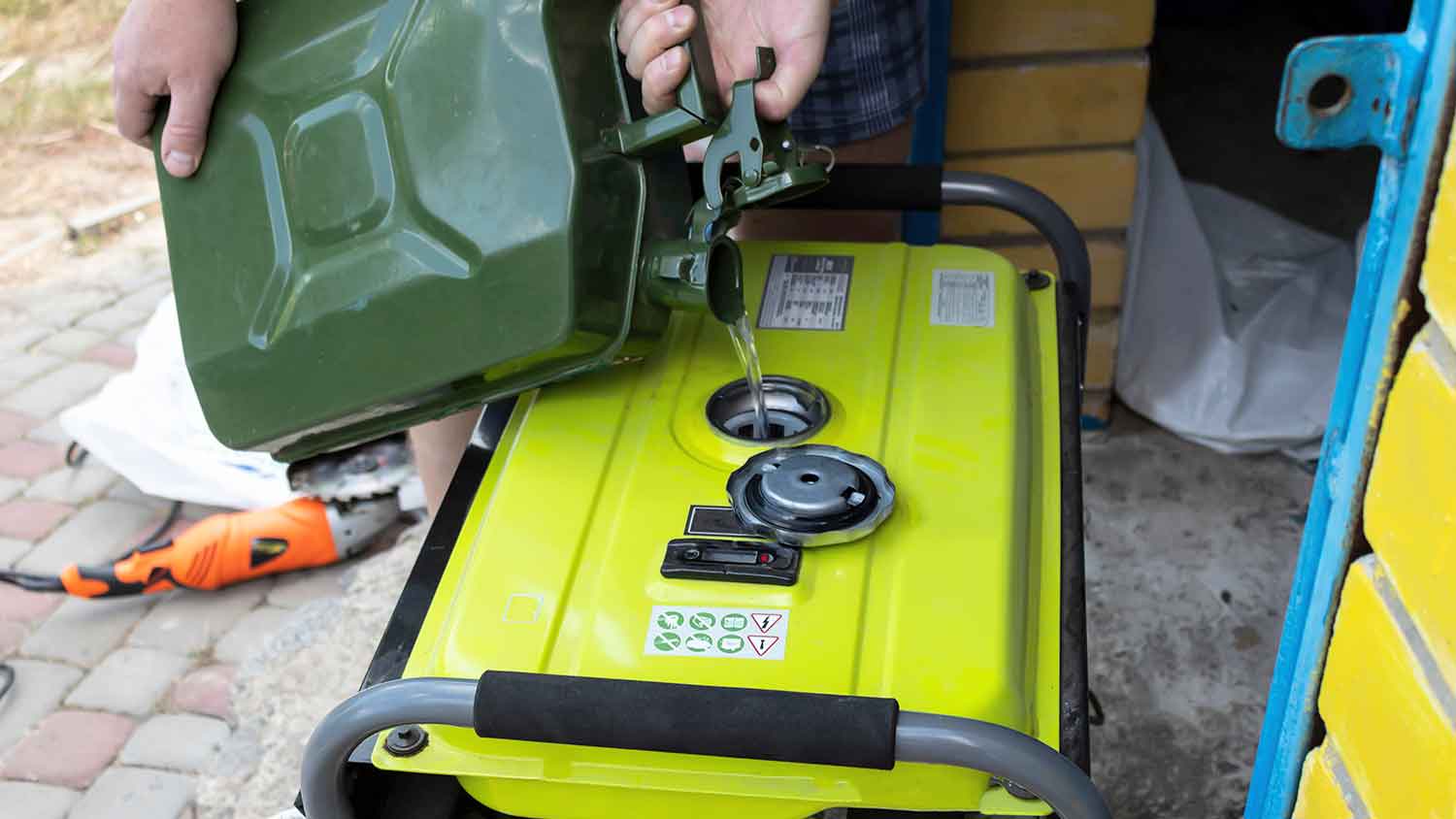
Gasoline is a great option for powering portable generators, appliances, and tools that don’t require a ton of power output. The only caveat with gasoline generators is that you’ll need to frequently replenish your supply with fresh gasoline—as the shelf life of gasoline is only three to six months. During an emergency, gas stations run out of gas relatively quickly, so you’ll need to stay on top of your supply.
Best for: Budget-conscious homeowners who don’t need to power many appliances during an emergency.
Pros:
It’s one of the most affordable generator types, ranging from $500 to $3,000.
You can use a fuel stabilizer to increase the shelf life of gasoline for up to 3 years.
Gas is an easily accessible fuel.
Cons:
The cost of gas increases over time.
It has high emission rates.
Gas-powered generators are highly flammable, creating an electrical fire risk.
6. Natural Gas Generators

Natural gas generators are typically used in standby generators, connecting directly to your home’s natural gas line for power. These generators have excellent durability and will last many years as long as they are adequately maintained.
Best for: Homeowners seeking an effective, low-emission whole-home generator.
Pros:
This generator type produces lower emissions than diesel and gasoline.
It has a nearly limitless fuel source.
It easily connects to your home’s natural gas pipeline.
Cons:
It’s cost-prohibitive, costing $2,200 to $25,000.
Natural gas generators are vulnerable to extreme cold.
It has high maintenance costs.
It will not work if the supply cuts off during an emergency.
7. Diesel Generators
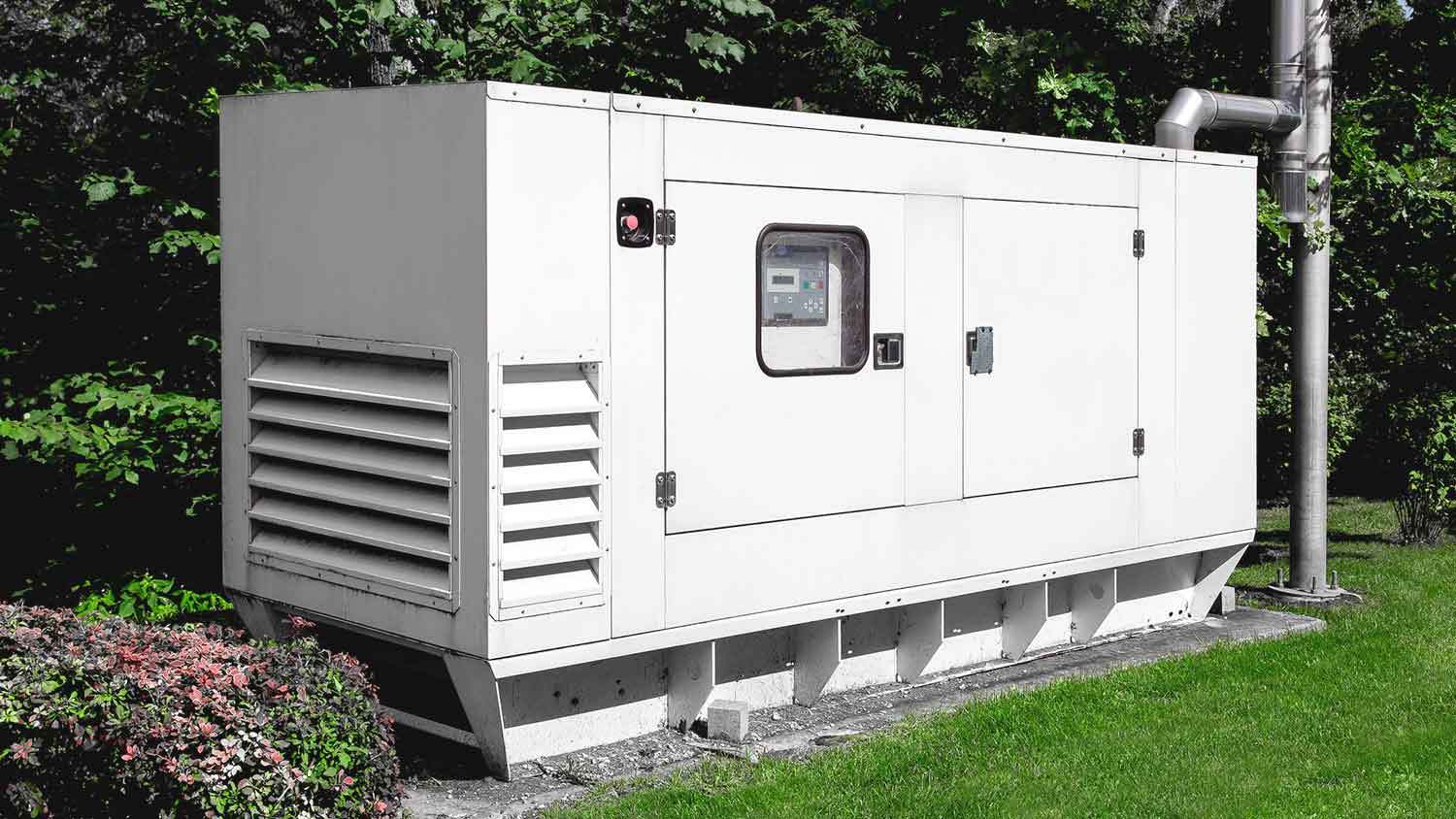
You’ll typically see diesel fuel in portable generators, but they can also work in standby or inverter generators. Diesel generators are durable and able to withstand cold climates. They’re also fuel-efficient and have a more powerful output than gasoline generators. Due to its ability to burn at low temperatures, diesel puts less strain on the generator’s engine.
Best for: Homeowners who live in cold climates and want a cost-effective, long-lasting generator.
Pros:
Diesel models are fuel efficient.
It’s long-lasting.
Diesel stores for a longer time than gasoline.
This generator type is easy to maintain.
Cons:
This type of generator produces harmful, toxic emissions.
It’s noisy to operate.
It’s heavier than other generators, making it difficult to move.
More costly than gasoline generators at $3,200 to $24,000.
8. Hydrogen Generators
Hydrogen generators are relatively new to the market but are still considered safe and cost-effective. These generators run on hydrogen gas—which is low-emission and carbon-friendly. It also produces gas on demand, making it energy-efficient and highly durable.
Best for: Homeowners or businesses that want a fuel-efficient, high-powered generator. Best for EV charging, off-grid homeowners, parties, construction sites, and homes or offices that need an uninterrupted power supply.
Pros:
It has low emission rates.
Hydrogen generators produce higher power output than other generators.
It’s resistant to damage.
Remote monitoring is available.
This type of generator is easy to maintain.
Cons:
More costly than other generators to operate.
Not available in all locations.
How to Choose the Type of Generator That’s Right For You
Choosing the correct type of generator can be overwhelming. You’ll need to find one that’s the right price point but also meets your power output needs. It’s a good idea to consult with a generator installer near you—not only will generator professionals be able to help you choose one that’s right for you, but they’ll also be able to install it safely and effectively. Here are a few questions to ask when deciding which generator is the right fit:
What is your overall budget, including maintenance and refueling costs?
How much wattage do you need to power your appliances and devices?
Can you operate the generator yourself, or do you need regular maintenance?
How much space do you have for a generator?
Can you safely place a generator 20 feet from your home to avoid carbon monoxide poisoning?
Do you want an automatic, seamless generator or one that you turn on yourself?
Does the noise level matter to you?
Which Generators Are Emergency Ready?
The good news is that several types of generators can help power your home during an emergency. The one that works best depends on your home’s needs and what region you live in. The best overall generator for emergency situations is a home standby generator, since it automatically turns on when your power goes out. The same goes for a gas generator that’s connected to your home’s existing gas line.
On the flip side, homes in less storm-prone areas can benefit from a solar generator, while those located in regions with colder climates can rely on a diesel generator to get them through any moderate outages.
Which Generators Are Most Eco-Friendly?
The most eco-friendly generators are solar and hydrogen generators. Solar generators rank at the top of the list since they produce zero emissions and rely on solar panels to generate energy. This type of generator works best for homes in climates with more sun exposure and less storms since they typically power necessary appliances but not an entire home. Hydrogen generators are fueled by hydrogen gas, which has low emissions and is relatively carbon-friendly.
When to Use Which Generators
To make sure you have the right type of generator for your needs, it helps to know the generator uses. Here’s a guide to help you make those distinctions:
| Gasoline | Typically used for short periods |
|---|---|
| Diesel | Most popular fuel for industrial generators |
| Natural gas | Generators rely on underground access to natural gas; more environmentally friendly than gasoline or diesel |
| Propane | Another greener alternative to diesel and gasoline; often the choice for fuel when natural gas isn’t an option |


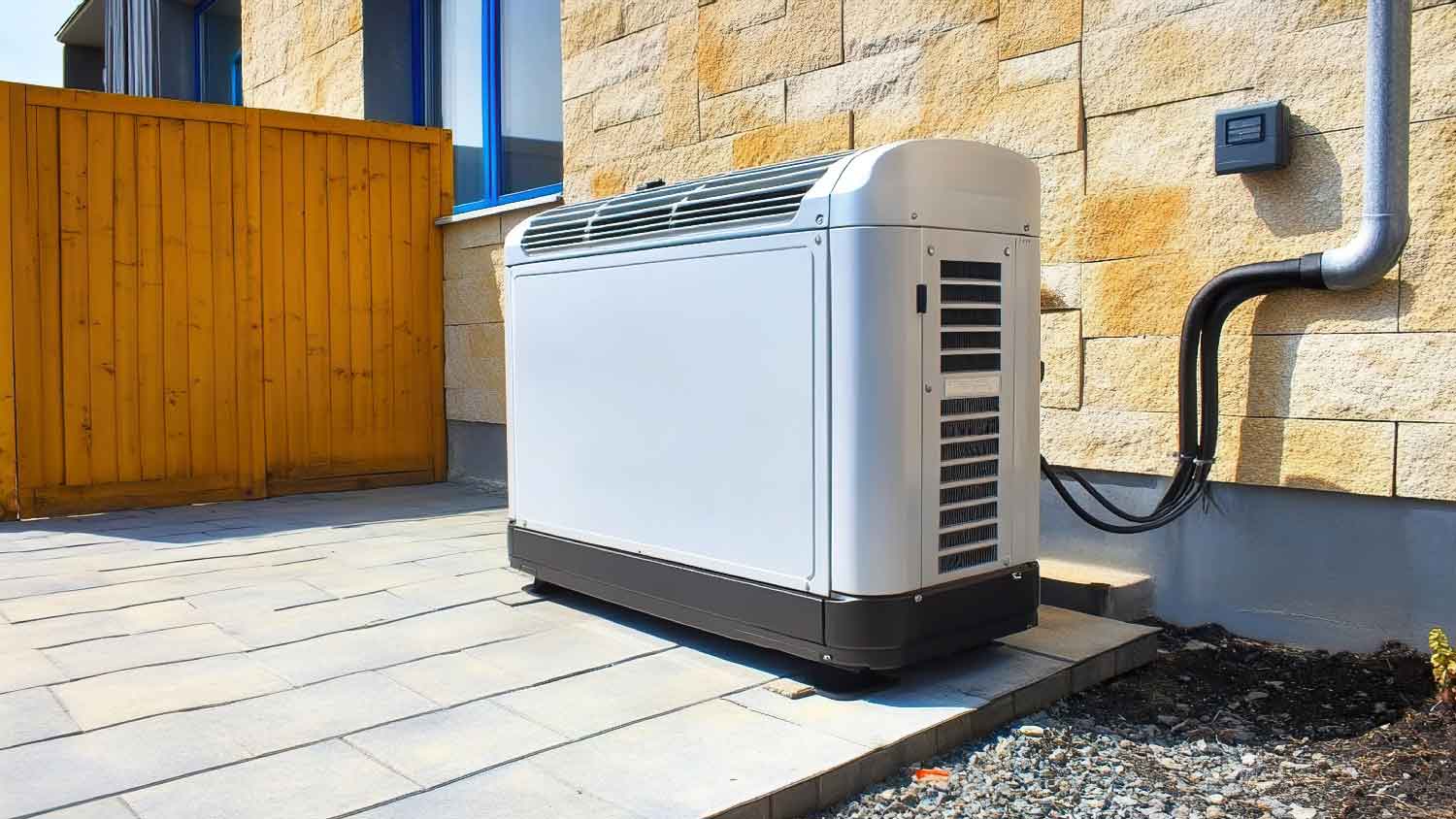
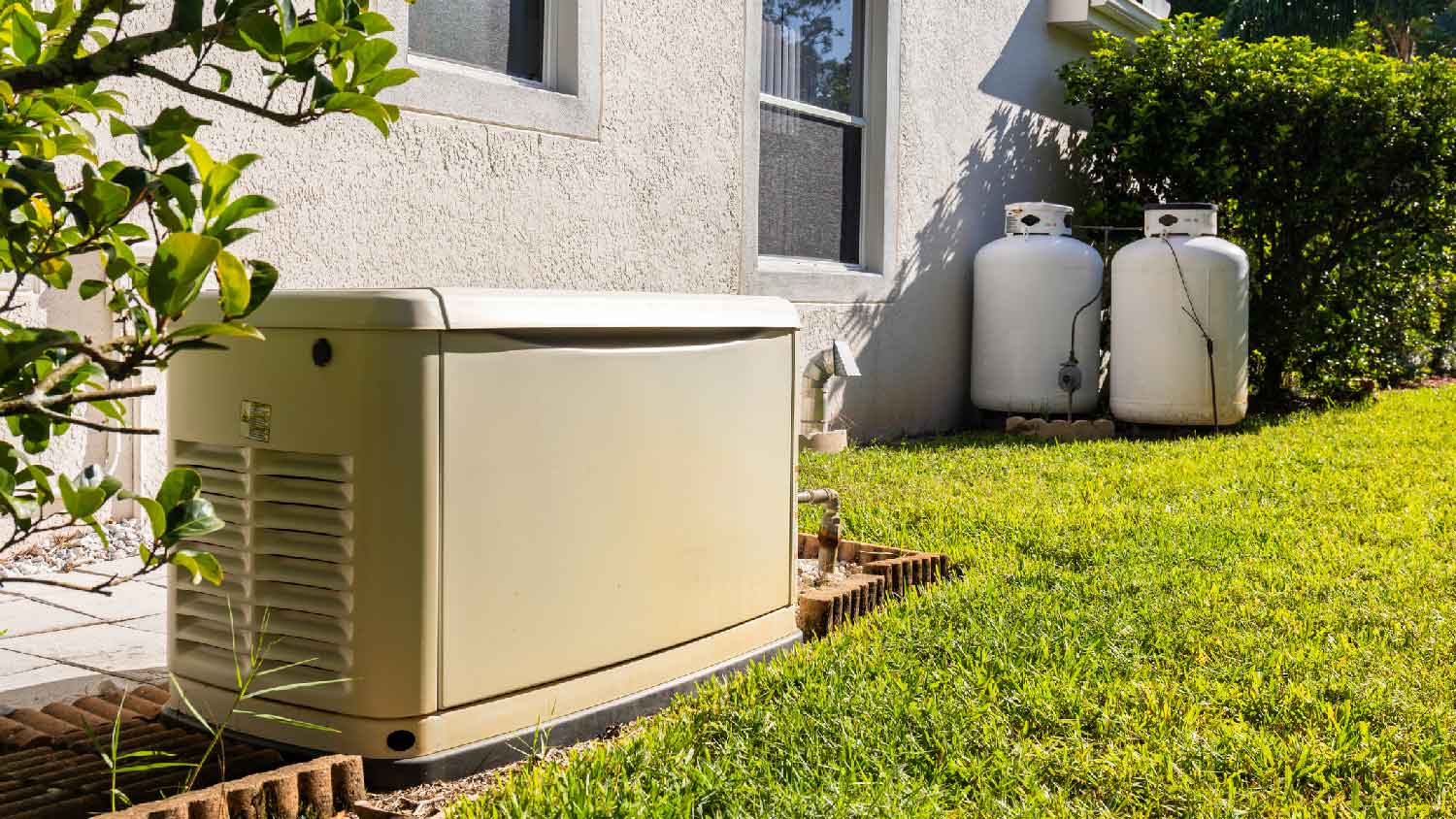
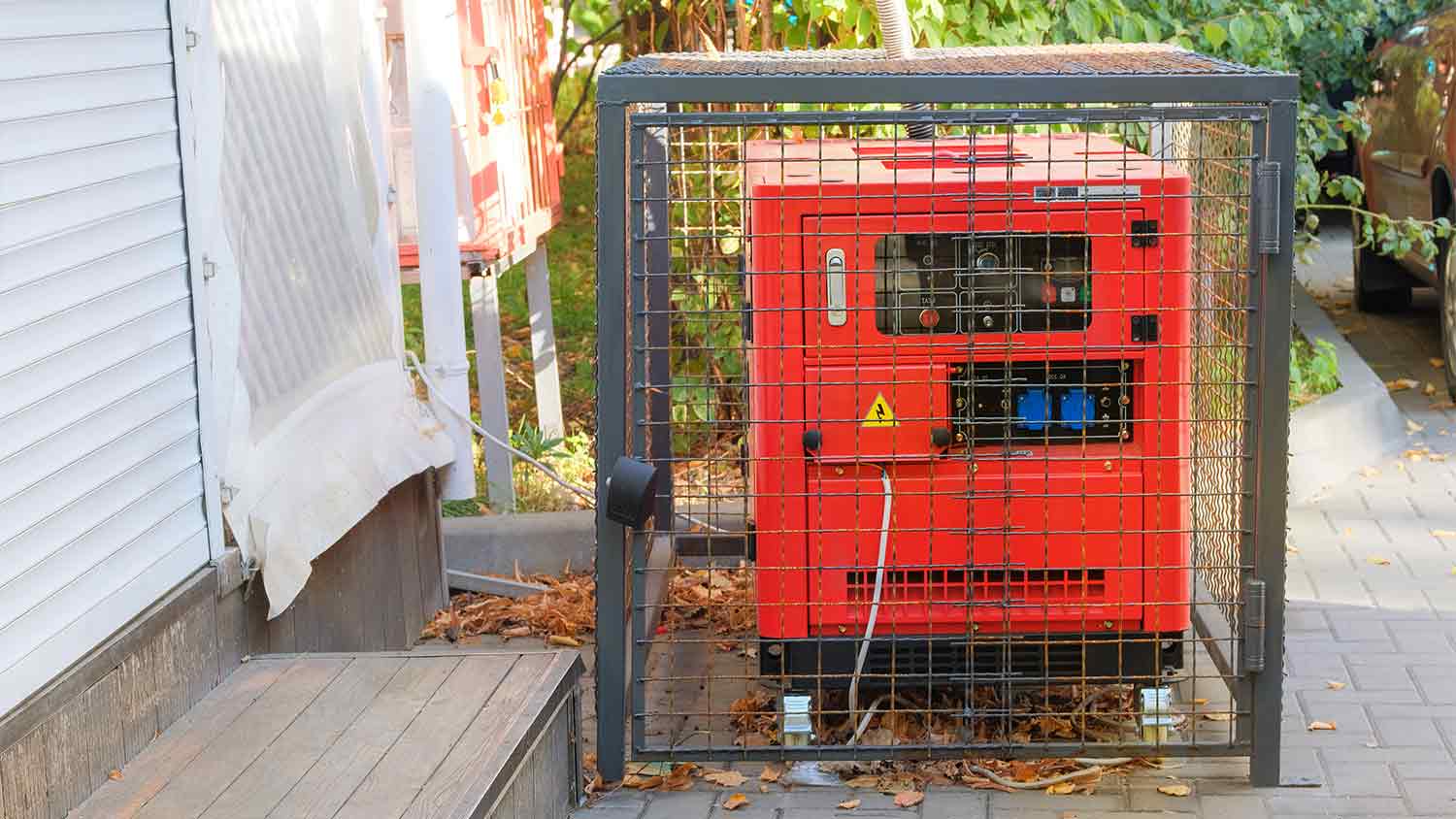
- Whole-House Generator Installation: A Complete Guide
- What Size Generator Do I Need? A Guide to Choosing the Right Generator for Your Home
- Who Installs Generators? A Complete Guide
- 15 Generator Uses for Homeowners
- Who Can I Hire to Fix a Generator?
- Can a Generator Get Wet? What You Need to Know
- Whole-House Generator Sizing: Everything You Need to Know
- A Complete Generator Maintenance Checklist
- Everything You Need to Know About Wind Generators For Homes
- Do Pellet Stoves Need Electricity and Can You Operate Them During a Power Outage?




